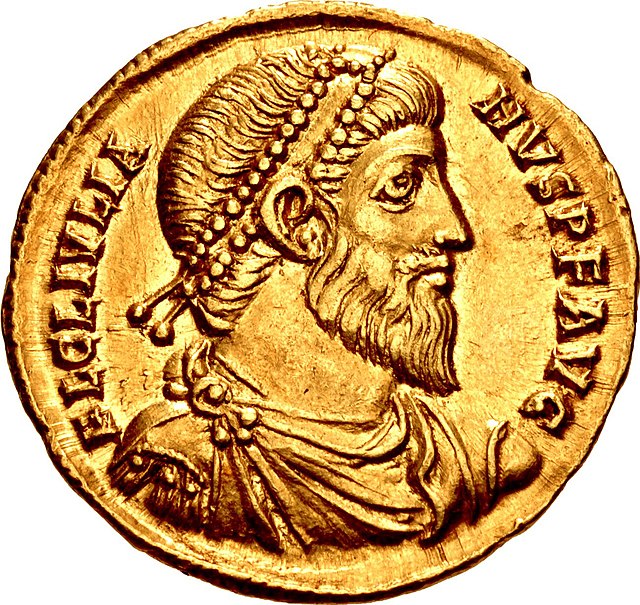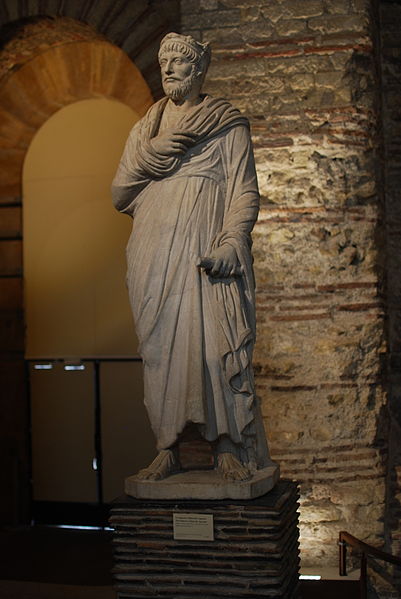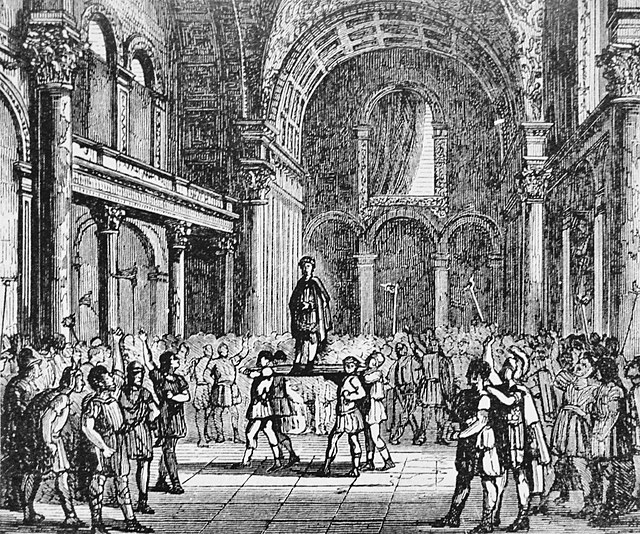Jovian was Roman emperor from June 363 to February 364. As part of the imperial bodyguard, he accompanied Julian on his campaign against the Sasanian Empire. Julian was killed in battle, and the exhausted and ill-provisioned army declared Jovian his successor. Unable to cross the Tigris, Jovian made peace with the Sasanids on humiliating terms. He spent the rest of his seventh-month reign traveling back to Constantinople. After his arrival at Edessa, Jovian was petitioned by bishops over doctrinal issues concerning Christianity. Albeit the last emperor to rule the whole Empire during his entire reign, he died at Dadastana, never having reached the capital.
Solidus depicting Jovian
Julian was the Caesar of the West from 355 to 360 and Roman emperor from 361 to 363, as well as a notable philosopher and author in Greek. His rejection of Christianity, and his promotion of Neoplatonic Hellenism in its place, caused him to be remembered as Julian the Apostate in Christian tradition. He is sometimes referred to as Julian the Philosopher.
Julian in a solidus minted at Antioch. Legend: Fl Cl Iulianus p f aug.
Statue at the Musée de Cluny formerly identified as Julian.
19th century depiction of Julian being proclaimed emperor in Paris (fancifully located in the Thermes de Cluny, then thought to have been the Imperial Palace), standing on a shield in the Frankish manner, in February 360.
Solidus of Julian issued at Ravenna in 361, during his war with Constantius. The reverse reads VIRTUS EXERC(ITUS) GALL(ICARUM), 'virtue of the Gallic army', celebrating Julian's legions from Gaul which acclaimed him as emperor.





